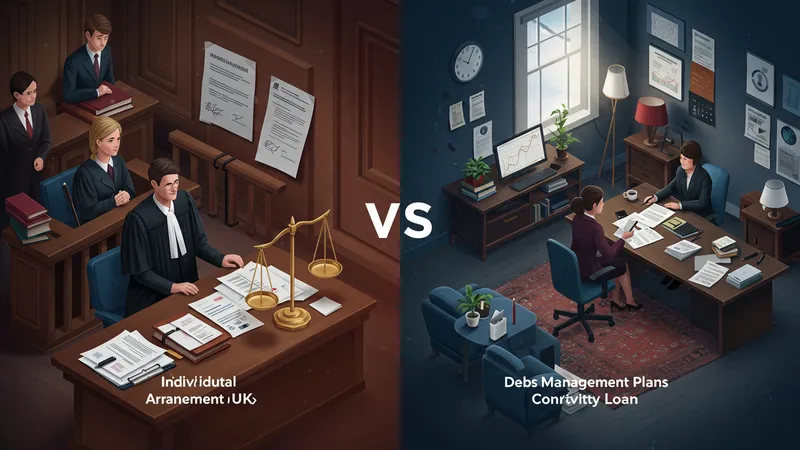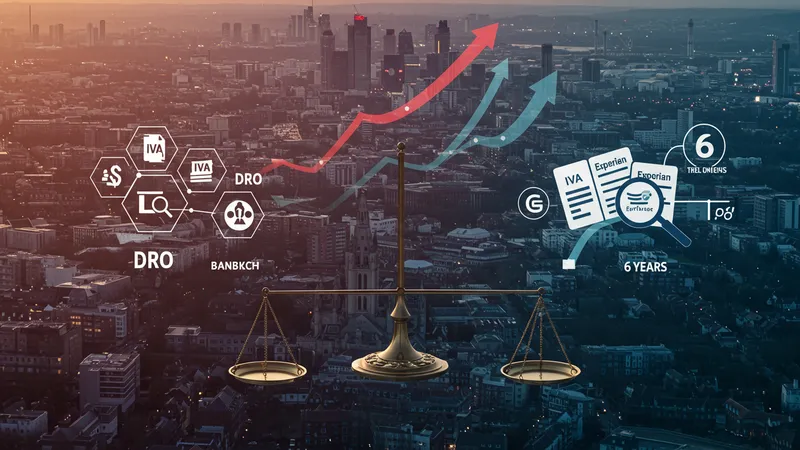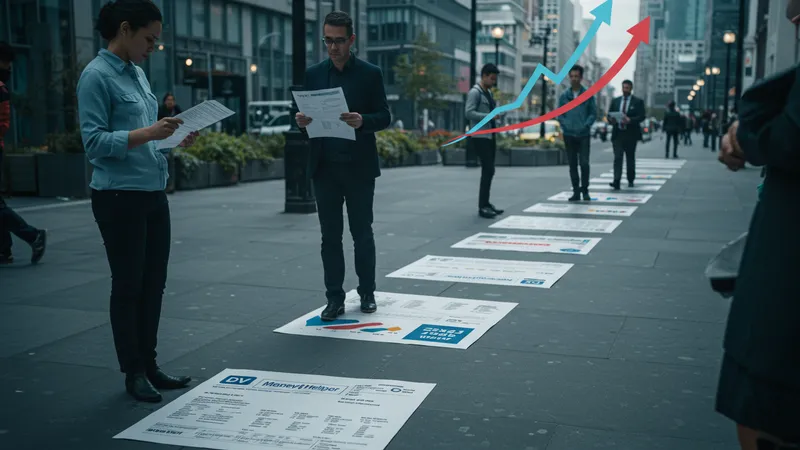

When people in the United Kingdom find themselves struggling with repayments, a variety of lawful options exist to help reduce debt and repair credit standing. Debt relief involves formal arrangements and informal tactics to make repayments manageable, often through government-backed schemes, professional services, or direct negotiations with creditors. Credit repair, on the other hand, focuses on reviewing, correcting, and improving credit history — ensuring that inaccurate negative marks are addressed and positive credit actions are emphasized. In the UK, well-established agencies and government frameworks provide targeted solutions to ease financial pressure and support a path toward a stronger credit profile.
Solutions for debt relief and credit repair in the UK are designed to balance fairness for consumers with transparency for creditors. The UK offers regulated services including debt management plans, individual voluntary arrangements, specific types of bankruptcy, statutory debt repayments, and comprehensive credit file repair. Each method has requirements, potential impacts on future borrowing, and is often best tailored by a professional advisor. Navigating these solutions requires a clear understanding of eligibility, potential consequences, and the long-term effects on financial health.

The range of options in the UK covers both formal government mechanisms and charity-backed support, as well as commercial credit repair services. For those struggling with persistent debts, a Debt Management Plan or Individual Voluntary Arrangement allows negotiated repayments without court. If your income is limited and debts are small, a Debt Relief Order or Administration Order can be practical, low-cost alternatives. For more severe cases, bankruptcy remains a legally recognized solution, although it has significant long-term impacts on assets and borrowing.
Debt consolidation loans, provided through banks or credit unions, bundle multiple debts into a single repayment — particularly useful for those with several creditors. Charity organisations like StepChange and Christians Against Poverty offer confidential, personalised planning and support, while MoneyHelper gives government-backed guidance. For pure credit score clean-up, credit reference agencies like Experian and specialized legal firms like Lexington Law help dispute errors and structure effective credit-builder plans.
While many UK consumers are familiar with the idea of debt consolidation, fewer know that writing to creditors yourself, checking your credit file for inaccuracies, and using formal complaints to the Financial Ombudsman Service can all speed up the path to better credit. Each option has its own costs, eligibility, and timeframes — making research and tailored advice crucial. Knowledge of these options allows consumers to match their circumstances to the solution most likely to yield improvement with minimal harm to future prospects.
Ultimately, finding the right debt solution or credit repair approach in the United Kingdom requires understanding the full toolkit, from government-backed orders to transparent, ethical repair services. The precise choice depends on income, type of debts, and personal goals. But what if some options on this list had benefits or costs that aren’t immediately obvious? The deeper details reveal even more valuable insights ahead…
The United Kingdom offers both formal and informal debt relief routes. Formal solutions—such as Individual Voluntary Arrangements (IVAs), Debt Relief Orders (DROs), bankruptcy, and Administration Orders—are legally binding and often involve courts or official registries. These help protect against legal action from creditors but do have significant impacts on credit files and sometimes personal assets. Informal arrangements like Debt Management Plans (DMPs) or consolidation loans, handled through StepChange or similar organizations, do not require court approval and are based on voluntary agreements with creditors, offering flexibility and confidentiality.

Formal solutions tend to offer stronger legal protection but come with more severe consequences for future lending and public record. Bankruptcy, for instance, wipes out most debts but restricts borrowing for years. DROs and Administration Orders are only available for specific debt and asset limits. DMPs, by contrast, allow for ongoing negotiation and can adapt if your circumstances change. Each type requires different eligibility and has a unique effect on your financial standing in the UK for up to six years from conclusion.
Which to choose depends largely on the amount owed, income availability, and how much risk you are prepared to accept. A DMP managed through StepChange or a free service such as CAP maintains greater privacy, while an IVA or bankruptcy fulfills precise legal frameworks for highly distressed cases. Understanding these distinctions empowers consumers to align their needs with the right solution, avoiding unnecessary fees or unintended long-term issues that could affect credit repair.
Those with multiple debts can sometimes streamline repayments by securing a debt consolidation loan—this does not erase existing balances but folds them into a single monthly payment, often at a lower interest rate if credit is good. However, this route depends on creditworthiness and can be costly if not carefully managed. As we move forward, let's break down the benefits and challenges of each leading service on our list and the real-life impact they have on UK residents.
StepChange’s Debt Management Plans are well-known for their transparency and nonprofit structure—clients typically pay what they can afford, with most support provided for free. This makes StepChange especially attractive compared to paid providers. Similarly, Christians Against Poverty (CAP) takes a holistic approach: not only helping renegotiate debt, but also supporting budgeting and financial education to prevent future difficulties. MoneyHelper delivers localized advice and is supported by the UK government, providing unbiased information on all available options, including debt relief and credit improvement.

Individual Voluntary Arrangements (IVAs) and Debt Relief Orders (DROs) are particularly useful for those with fixed income or few assets. IVAs typically last five to six years and allow you to write off a portion of your debt at completion, while DROs give quick relief for smaller amounts, carrying less stigma than bankruptcy. Administration Orders, meanwhile, are court-supervised for those with multiple debts and at least one county court judgment against them—they cap repayments to fit your means and restrict further action from creditors.
On the credit repair front, Lexington Law stands out for its legal expertise in disputing incorrect credit file entries, but it comes with a fairly high monthly cost compared to the free statutory correction services from Experian and other credit reference agencies. Experian and its peers allow you to check your file for inaccuracies and submit disputes online at no charge. This do-it-yourself approach can be effective if you’re willing to gather paperwork and be persistent, but professionals may help with more complex cases.
Debt consolidation loans remain popular with those confident in their repayment ability—major banks, building societies, and select online lenders offer rates from around 6% APR, though higher for those with damaged credit. Used wisely, this can reduce monthly costs and simplify finances, but risks include increased total interest and the need for credit discipline. In the next section, let’s investigate how these solutions affect your credit rating in the UK and explore who stands to benefit the most.
Every debt relief decision in the UK has a different effect on your credit file. Options like IVAs, bankruptcy, and DROs will be recorded by credit reference agencies and typically stay visible for six years from the date they’re completed. While these may lead to an initial drop in score, many see their ratings begin to recover as settled accounts and regular repayments are reported. Credit repair services focus on ensuring your record is accurate: disputing outdated or false information with agencies such as Experian or Equifax can prevent wrongful barriers to future lending.

Debt Management Plans (DMPs), while informal, can still affect your creditworthiness since reduced payments are sometimes flagged by lenders. However, because DMPs are not formal insolvency proceedings, the impact is often less severe than that of bankruptcy. Using a service like StepChange helps ensure that updates are reported properly, and that all negotiated changes are documented—setting the stage for gradual score improvements post-plan.
Debt consolidation loans, if paid on time, may actually boost your score by reducing individual credit utilization and showing consistent repayment. Late payments or additional borrowing, though, will have the opposite outcome. Meanwhile, free support from services like MoneyHelper or CAP can help you put together a step-by-step plan to improve your history: by regularly checking your credit file, disputing mistakes, and ensuring old defaults are removed after their legal expiry.
The influence of each debt solution varies not only by type, but by how well an individual sticks to new repayment schedules and monitors their file. Retaining all paperwork, communicating proactively with creditors, and double-checking updates on your credit report increase the chance of a faster, more complete recovery. Next, discover insider tips and real-life UK examples for maximizing the effectiveness of your chosen debt and credit repair approach.
Staying proactive and informed can significantly enhance the outcomes of debt relief or credit repair in the UK. Begin by obtaining copies of your latest credit report from agencies like Experian, Equifax, or TransUnion—you are entitled to a free statutory version each year. Review this carefully for errors or out-of-date defaults, as successful disputes can improve your score almost immediately. If you work with a paid credit repair service, ensure they are authorized, transparent about costs, and realistic about timelines and results.

When entering a Debt Management Plan, keep communication open with both the provider (e.g., StepChange) and your creditors. Reporting changes in income or expenses quickly can prevent missed payments and maintain positive standing. Those considering IVAs or bankruptcy should seek impartial advice from organizations like MoneyHelper or Citizens Advice—understanding the long-term effects on borrowing and daily finances is crucial for setting expectations and planning recovery.
Charity-backed support networks such as Christians Against Poverty bring valuable face-to-face coaching and community resources, which can help address not just financial, but also emotional wellbeing throughout the debt solution process. Events, workshops, and online forums can be effective tools to stay motivated and informed. For debt consolidation, compare loan rates between high street banks and credit unions, as the latter often provide more flexible, affordable terms for those with imperfect credit backgrounds.
Embarking on the journey to financial stability in the United Kingdom requires a mix of patience, careful choice of solution, and ongoing vigilance over credit reports. With tailored advice and the right blend of formal and informal strategies, thousands of UK residents make successful recoveries every year and build towards a healthier, more resilient credit future.